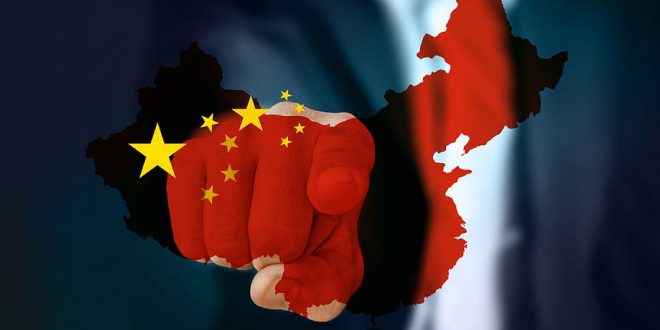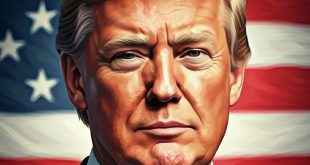China announced on Wednesday that it will impose an additional 50% tariff on a wide range of U.S. imports, significantly escalating the ongoing trade conflict with the United States. The move comes in direct response to President Donald Trump’s latest tariff increase, which raised total U.S. duties on Chinese goods to a combined 104%.
The new Chinese tariffs will bring Beijing’s total reciprocal tariffs on U.S. goods to 84%, up from the previous 34%, and are set to take effect on April 10.
Retaliation Deepens Trade Conflict
The announcement follows two successive rounds of tit-for-tat tariff hikes between the world’s two largest economies in less than a week. Trump’s tariffs officially came into force on Wednesday, triggering immediate volatility in financial markets and deepening fears of a prolonged global trade war.
In addition to the tariff hike, China’s Ministry of Commerce revealed it will:
- Impose export controls on 12 more U.S. firms, and
- Add six additional American companies — including American Photonics and Novotech — to its “unreliable entities” list. These entities are now effectively barred from doing business with Chinese firms.
U.S. Responds with Criticism, Seeks Talks with Other Allies
U.S. stock index futures tumbled following China’s announcement, reflecting growing investor unease over the escalating trade confrontation.
Asked about the developments on Fox Business, U.S. Treasury Secretary Scott Bessent called China’s actions “unfortunate,” and accused Beijing of avoiding negotiations.
“The Chinese don’t want to come and negotiate, and that’s disappointing. They are the worst offenders in the international trading system,” Bessent said.
President Trump struck a more optimistic tone, claiming that “a lot of countries” were eager to strike trade agreements with the U.S. He added that he believed China would eventually return to the negotiating table.
Meanwhile, U.S. officials are intensifying discussions with key allies.
- Talks are underway with South Korea and Japan.
- Bessent is expected to meet Vietnam’s Deputy Prime Minister later Wednesday, in a bid to solidify support from traditional U.S. partners in Asia.
China Warns WTO: Tariffs Could Destabilize Global Trade
China escalated its diplomatic response by issuing a formal complaint to the World Trade Organization (WTO), warning that the trade dispute with the U.S. had now “dangerously escalated.” In its statement, Beijing expressed “grave concern” and “firm opposition” to Washington’s actions, arguing that the sweeping tariffs risk destabilizing global trade systems.
Outlook: No End in Sight
With both nations now locked in an aggressive cycle of retaliation, hopes for a near-term resolution have dimmed. Analysts warn that the prolonged standoff could deal a severe blow to global economic growth, disrupt supply chains, and keep financial markets on edge.
Investors are now closely watching how other major economies respond, and whether diplomatic backchannels between Washington and Beijing remain open amid rising tensions.
 Noor Trends News, Technical Analysis, Educational Tools and Recommendations
Noor Trends News, Technical Analysis, Educational Tools and Recommendations





